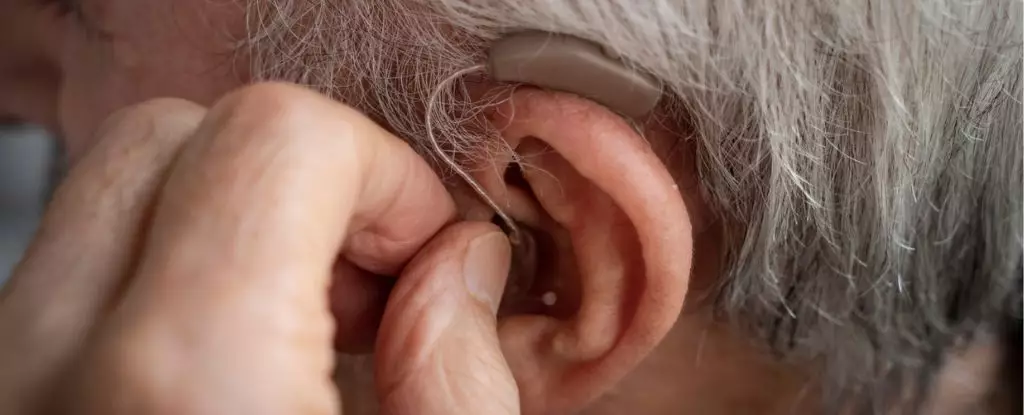Recent studies have illuminated a compelling relationship between hearing loss and the onset of Parkinson’s disease, suggesting that managing auditory impairments could have broader implications for neurological health. A recent investigation involving a substantial group of over 3.5 million U.S. veterans has unveiled that individuals suffering from hearing loss may be predisposed to later diagnoses of Parkinson’s disease. The potential correlation becomes more pronounced with the severity and duration of the hearing impairment. These findings raise vital questions about the role of hearing aids in mitigating the risks associated with neurodegenerative disorders, emphasizing the importance of early intervention in hearing loss.
This extensive study indicates a fascinating pattern; as the degree of hearing loss escalates, so too does the likelihood of developing Parkinson’s disease. This trend is not just a fleeting observation but reflects a significant public health concern, as suggested by the research led by neurologist Lee Neilsen and his team at Oregon Health and Science University. Their findings underscore a pivotal notion: the prescription of hearing aids at the onset of hearing impairment could significantly lower the risk of subsequent Parkinson’s diagnosis. The researchers assert that hearing aids serve as a low-cost, low-risk intervention that promotes cognitive resilience as individuals age.
Compounding the study’s significance, the link between hearing loss and cognitive decline is well-documented. A systematic review in 2022 revealed that hearing aids can lead to a 19 percent reduction in cognitive decline risk for adults with hearing impairments. Furthermore, a landmark clinical trial in 2023 hinted at the capacity of hearing aids to decelerate cognitive decline by nearly 50 percent in older populations. Given that both Parkinson’s disease and dementia share common threads of cognitive deterioration, the implications of these findings are far-reaching.
The meticulous approach of Neilsen and his cohort—including a predominantly middle-aged population comprised largely of White males—has provided robust evidence reinforcing the hypothesis that hearing loss is a modifiable risk factor for Parkinson’s disease. In practical terms, their two-decade-long longitudinal study not only tracked the incidence rates of Parkinson’s among participants but also discerned crucial data highlighting the benefits of hearing aid intervention.
The alarming statistic of an additional 10 cases of Parkinson’s observed per 10,000 individuals with mild hearing loss underscores the urgency for proactive measures. Those equipped with hearing aids experienced significantly reduced risk compared to their untreated counterparts, revealing a notable difference even one year into the study. The potential mechanisms underlying these findings warrant further exploration. One hypothesis posits that hearing aids may restore neural connections, while another suggests they alleviate cognitive strain, allowing for improved brain functionality.
The study’s conclusions call for a paradigm shift in healthcare practices regarding hearing screening. Given the established linkage between hearing loss and neurodegenerative conditions, stakeholders in medical institutions must advocate for routine auditory assessments, even when patients do not express concerns about their hearing. Screening could facilitate early detection and intervention, ultimately reducing the prevalence of Parkinson’s disease triggers in the population.
Additionally, as researchers continue to probe the complexities of hearing loss and its potential as an early indicator for conditions like Parkinson’s disease, it becomes increasingly clear that healthcare systems must prioritize comprehensive approaches to auditory health. This includes improving accessibility to hearing aids and addressing the stigmas surrounding their use.
The burgeoning evidence connecting hearing loss with Parkinson’s disease diagnosis challenges us to rethink the significance of auditory health in overall cognitive well-being. As society navigates the complexities of aging populations and rising incidents of neurodegenerative disorders, proactive hearing management emerges as a critical intervention. By embracing and advocating for hearing health, we may not only improve quality of life but also fortify cognitive longevity for generations to come. As research progresses, it is imperative that we heed these findings and integrate them into healthcare policies designed to promote holistic health and well-being.


Leave a Reply